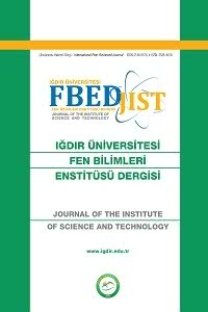Spin 1 Spinor Construction with Clifford Algera and Dirac Spin 1/2 Spinors
Clifford Algebra, Spinors, Spin
Spin 1 Spinor Construction with Clifford Algera and Dirac Spin 1/2 Spinors
Clifford Algebra, Spinors, Spin,
___
- Ashdown MAJ, Somaro SS, Gull SF, Doran CJL, Lasenby AN, 1998. Multilinear Representations of Rotation Groups within Geometric Algebra. Journal of Mathematical Physics, 39(3): 1566-1588.
- Cartan E, 1938. Leçons sur la theorie des spineurs. Hermann & Cie, Paris.
- Chisholm JSR, Farwell RS, 1991. Gauge transformations of spinor within a Clifford algebra. Journal of Physics A: Mathematical and General, 32: 2805-2823.
- Hestenes D, 1975. Observables, operators, and complex numbers in the Dirac theory. Journal of Mathematical Physics, 16(3): 556.
- Hestenes D, 1986. Clifford algebra and the interpretation of quantum mechanics. In: Chisholm J SR and Common AK, editors, Clifford Algebras and their Applications in Mathematical Physics; Reidel D.
- Ji C R, Li Z, Suzuki AT, 2015. Electromagnetic gauge field interpolation between the instant form and the front form of the Hamiltonian Dynamics. Physical Review D, 81.
- Juvet G, 1930. Opérateurs de Dirac et équations de Maxwell. Commentarii Mathematici Helvetici, 2: 225-235.
- Li Z, An M, Ji CR, 2015. Interpolation Helicity Spinors Between the Instant Form and the Light-front Form. Physical Review D, 92.
- Lounesto P, 1997. Clifford algebra and Spinors. Cambridge University Press, Cambridge-UK.
- Pauli W, 1927. Zur Quatenmechanik des magnetischen Elektrons. Zeitschrift fur Physik, 43: 601-623.
- Pavšič M, 2010. Space inversion of spinors revisited: A possible explanation of chiral behavior in weak interactions. Physics Letters B, 692(3): 212-217.
- Reisz M, 1947. Sur certain notions fondamentales en théorie quantique relativiste. In: C.R.10 Congrés Math. Scandinaves, Copenhagen; 1946, Jul. Gjellerups Forlag, Copenhagen; 1947. pp. 123-148.
- Sauter F, 1930. Lösung der Diracschen Gleichungen ohne Spezialisierung der Diracschen Operatoren. Zeitschrift fur Physik, 63: 803-814.
- Tomonaga S, 1998. The story of spin. University of Chicago Press, p.129, Chicago and London.
- Winnberg JO, 1977. Superfields as an extension of the spin representation of the orthogonal group. Journal of Mathematical Physics, 18: 625.
- ISSN: 2146-0574
- Yayın Aralığı: 4
- Başlangıç: 2011
- Yayıncı: -
Humik Asitin Baklada (Vicia faba L.) Tuz (NaCl) Stresinin Azaltılması Üzerine Etkisi
Murat TUNÇTÜRK, Rüveyde TUNÇTÜRK, Erol ORAL, İshak BARAN
Geri Dönüştürülmüş Beton Agregasının Düşük Plastisiteli Bir Kilin Mekanik Özelliklerine Etkisi
Students’ Milk Consumption Patterns at Erzincan Binali Yildirim University
Hediye KUMBASAROĞLU, Tuğba EREM KAYA
Erzurum İlinde Eğitim Durumlarının ve Gelir Düzeylerinin Su Ürünleri Tüketimine Etkisi
Klasik Salgın Hastalik Modeli Dinamiklerinin Beta Dağılımına Sahip Rastgele Bileşenlerle İncelenmesi
Tülay KESEMEN, Mehmet MERDAN, Zafer BEKİRYAZICI
Hakan GEREN, Yaşar Tuncer KAVUT
Sebze Tohumu Dış Ticaret Rekabet Düzeyinin Porter’ın Elmas Modeliyle Analizi: Antalya İli Örneği
Abdülkadir FİLİZ, Cengiz SAYIN
İnsan Serum Paraoksonaz-1 (hPON1) Üzerine Bendamustin İnhibisyon Etkisi
